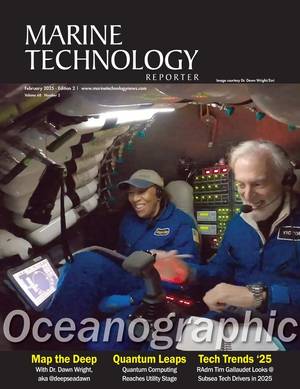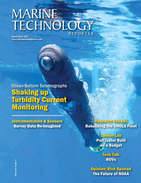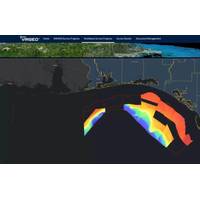
Fugro Expands Seafloor Mapping Scope for Florida’s Coastal Resilience Project
previous award of 14,000 square kilometers of airborne lidar data for the FSMI, Fugro is now conducting vessel-based surveys across 42,000 square kilometers offshore Florida.This new data acquisition campaign covers five of the six Florida DEP program regions, including the entire Atlantic Coast, the Florida Keys and portions of the Gulf Coast.Initially launched in the fourth quarter of 2024 with a single survey vessel, the project has rapidly scaled to a multivessel operation.Fugro is conducting 65% of the FSMI’s vessel-based program. Data collection is expected to be completed in late 2025, with
Podcast: Fascinated by Shipwrecks; USS Monitor Digitally Reimagined
programs to address commercial and recreational uses in and around the sanctuaries. Tane’s specialties include 19th-century warships and deep-water archaeology, as well as building collaborative partnerships, public outreach and exhibit design. He has led NOAA archaeological expeditions in the Florida Keys, the Great Lakes, California, the Northwestern Hawaiian Islands, Alaska, and USS Monitor. He’s also participated in projects including a sunken Boeing B-29 Superfortress in Lake Mead, a Civil War blockade runner in Bermuda, USS Arizona, and was most recently part of an expedition to RMS
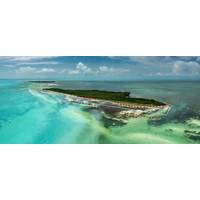
NOAA Unveils FLA Keys Marine Sanctuary Restoration Blueprint
After more than a decade of collaboration with cooperating agencies, community experts and public input, NOAA today released the final management plan and environmental impact statement for Florida Keys National Marine Sanctuary.The documents outline NOAA’s regulatory recommendations and mark a critical milestone in the most comprehensive public process to restore the Florida Keys’ delicate ecosystem.The first management plan update since 2007 — crafted with extensive collaboration among NOAA, State of Florida agencies and local communities — outlines revised goals for the
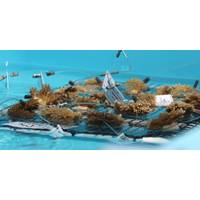
The Heroic Effort to Save Florida’s Coral Reef from Devastating Ocean Heat
heat wave. They carefully scraped away harmful algae and predators impinging on staghorn fragments, under the supervision and training of interns from Islamorada Conservation and Restoration Education, or I.CARE.Normally, I.CARE’s volunteer divers would be transplanting corals to waters off the Florida Keys this time of year, as part of a national effort to restore the Florida Reef. But this year, everything is going in reverse.As water temperatures spiked in the Florida Keys, scientists from universities, coral reef restoration groups and government agencies launched a heroic effort to save the
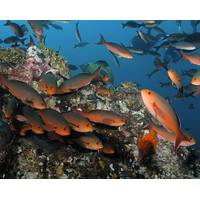
NCCOS Awards $1.7M to Support Habitat Connectivity Research in National Marine Sanctuaries
NOAA’s National Centers for Coastal Ocean Science awarded $1.7 million of an anticipated $5.9 million over the next four to five years for three research projects to investigate species’ habitat usage and connectivity in and around national marine sanctuaries in the Florida Keys, Flower Garden Banks, and Stellwagen Bank.Marine protected areas (MPAs), such as national marine sanctuaries, are designated to protect significant natural and cultural resources within the marine environment for the benefit of present and future generations. While the use of MPAs has grown, there is still a gap in
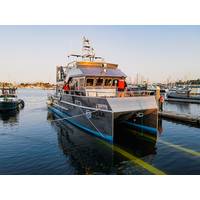
AAM Launches 50’ Research Vessel for NOAA
a number of vessels for NOAA, and we are always excited to work with this essential agency. The Office of Marine Sanctuaries serves as the trustee for a network of marine protected areas encompassing more than 600,000 square miles of marine and Great Lakes waters from Washington state to the Florida Keys, and from Lake Huron to American Samoa.”(Photo: All American Marine)On board the vessel there is approximately 250 square feet of working space on the aft deck, with a complete complement of working gear and an extensive grid of deck sockets. The deck sockets are spaced every two feet and
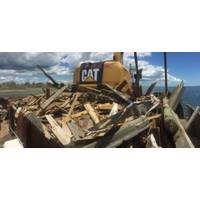
More Than $5.9 Mln Invested in Marine Debris Cleanup Projects
administrator. "These grants are going to help clean up our coastal and Great Lakes communities and further power the American blue economy by creating more attractive recreational opportunities."Among the projects selected are the removal of 21,000 pounds of marine debris from NOAA’s Florida Keys National Marine Sanctuary; the removal of at least 20 abandoned and derelict vessels from estuaries in North Carolina; the engagement of 500 students in Michigan to become Marine Debris Prevention Ambassadors and reduce waste produced in school lunchrooms;.and the development of a recycling program
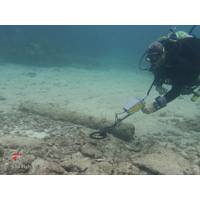
JW Fishers Helps to Uncover History
In November of 2018, two archaeological maritime discoveries were made near the Upper Florida Keys by individuals who federal scientists lauded for reporting, rather than disturbing, their finds. Jennifer Kerr, owner of Sailfish Scuba, mile marker 103.1, was exploring the Hannah M. Bell shipwreck near Key Largo when she noticed a cannon on Elbow Reef that is now believed to be nearly 200 years old. The find comes the same month that Homestead commercial trap fisherman Jose Antonio Lopez Ruiz was looking overboard from his vessel and spotted what turned out to be the wooden wreckage from an
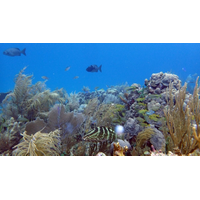
How Microbes Reflect the Health of Coral Reefs
A comparison of protected and impacted reefs in Cuba and Florida KeysMicroorganisms play important roles in the health and protection of coral reefs, yet exploring these connections can be difficult due to the lack of unspoiled reef systems throughout the global ocean. A collaborative study led by scientists at the Woods Hole Oceanographic Institution (WHOI) and the Centro de Investigaciones Marinas - Universidad de La Habana (CIM-UH) compared seawater from 25 reefs in Cuba and the U.S. Florida Keys varying in human impact and protection, and found that those with higher microbial diversity and lower
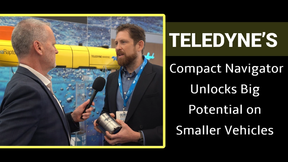
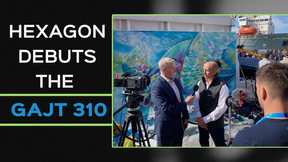
 February 2025
February 2025
